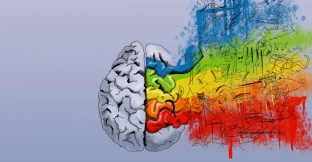Introverts are people who spend most of their time alone, who do not like noisy companies and gatherings of people. Loud music, meeting new people, long-term communication and similar activities and environments exhaust them. Another thing – quiet loneliness in your favorite, comfortably furnished apartment, where you can reflect and recharge your batteries after exhausting social contacts. It is difficult for extroverts to understand such a craving for solitude, they find the pastime of introverts boring. But why is this happening? How do introverts and extroverts differ at the brain level? This will be discussed in this article.
Introvert and extrovert: big dopamine difference
Since the brain and the processes taking place in it determine the behavior and reaction of a person to the events around him, it is logical to look for the reason for the differences between an introvert and an extrovert exactly there. In the course of observations, it was possible to find out that they react differently to the neurotransmitter dopamine.
Dopamine – it is a chemical produced in the brain that motivates a person to earn money, climb higher in the social ladder, look for a partner and achieve success at work. When dopamine enters the brain, both introverts and extroverts become more sociable, happy to interact with the outside world and the people around them. No, introverts do not produce less dopamine than extroverts, the difference lies in the activity of the response to this neurotransmitter – the extrovert brain responds more "fast" to dopamine.
Extroverts tend to become more energetic when waiting, say, for a promotion at work or meeting an interesting person.

Acetylcholine – second difference between introvert and extrovert
Introverts prefer to use the neurotransmitter acetylcholine. Like dopamine, acetylcholine is also associated with pleasure, but under its influence, a person feels good when he goes deep into himself. Acetylcholine nourishes our ability to think deeply, to immerse ourselves in reflection, to focus on one thing or activity for a long time. This neurotransmitter – another explanation for the difference between an introvert and an extrovert. Introverts love a quiet environment because it helps them avoid external stimuli and concentrate fully on a particular activity. Therefore, enjoying quiet solitude, a pleasant book or favorite series, introverts bask under the influence of acetylcholine.
The difference between the nervous systems of an introvert and an extrovert
Acetylcholine is associated with the parasympathetic part of the nervous system, which in turn lowers blood pressure, reduces heart rate, but stimulates digestion. When the parasympathetic nervous system is more active, the body stores the energy that we receive from the external environment:
- muscles relax;
- pupils constrict to limit the amount of incoming light;
- blood pressure drops, heart rate slows down.
In general, the body is preparing for the mode of hibernation and reflection – two things introverts love.
Introverts and extroverts naturally use both parts of the nervous system (sympathetic and parasympathetic) in certain circumstances, as do both neurotransmitters – dopamine and acetylcholine. However, as you may have guessed, "beloved" part of the nervous system of extroverts is the sympathetic, which makes us more active, attentive to the external environment, energetic. The ability to deliberately think is temporarily suppressed, the person makes a decision quickly.
For the sake of fairness, I would like to note that introverts, contrary to the impression they make, are not rude anti-social hermits – it's just that their brains are designed in such a way that communication and an active social life quickly exhaust them.






Add a comment